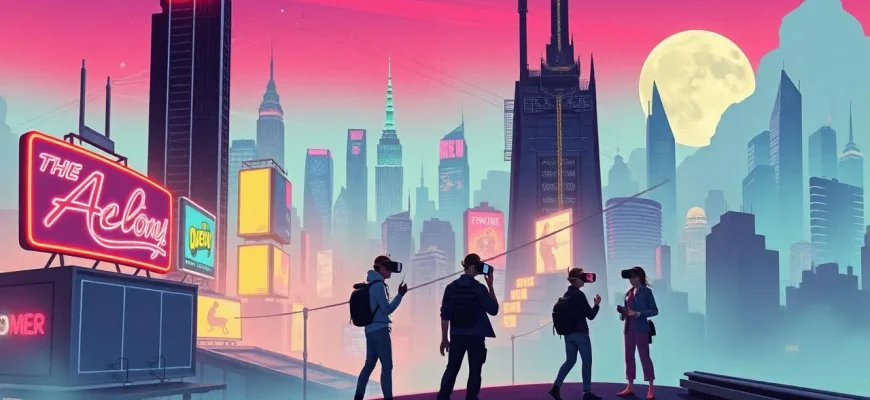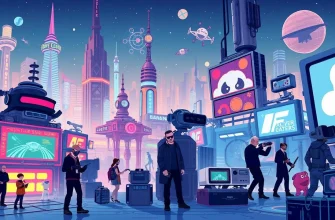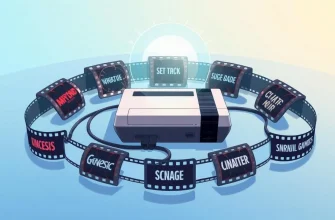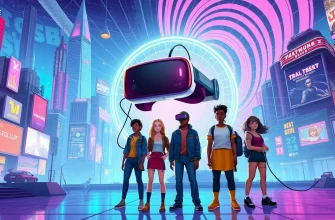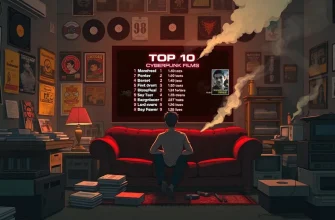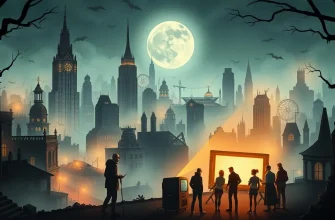Fancy a journey into the realms of virtual reality and simulated worlds? Our selection of sci-fi films about simulators will transport you to places where the line between reality and simulation blurs. These films not only entertain but also provoke thought about the nature of our existence, the potential of technology, and the ethical dilemmas it presents. Whether you're a tech enthusiast or just love a good twist, this collection is sure to captivate and inspire.
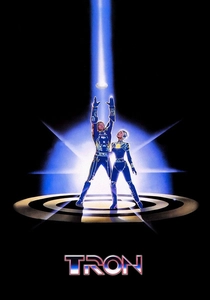
Tron (1982)
Description: A computer programmer is transported inside the software world of a mainframe computer, where he interacts with programs in the form of human avatars. Tron was one of the first films to extensively use computer-generated imagery (CGI).
Fact: The film's arcade game was so popular that it became a cultural phenomenon, and the film itself inspired a sequel, "Tron: Legacy," in
 Watch Now
Watch Now
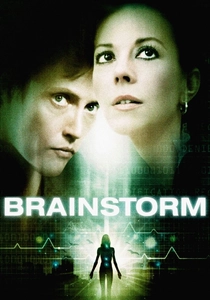
Brainstorm (1983)
Description: Scientists invent a machine that records and plays back human experiences, including emotions and sensations, leading to ethical and existential dilemmas. It's a precursor to many modern VR concepts.
Fact: The film was directed by Douglas Trumbull, known for his special effects work on "2001: A Space Odyssey."
 Watch Now
Watch Now
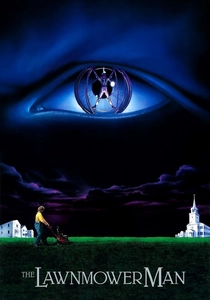
The Lawnmower Man (1992)
Description: A mentally challenged man undergoes experimental virtual reality treatments that enhance his intelligence, but with unintended consequences. It's an early exploration of VR's potential and its ethical implications.
Fact: The film was loosely based on a Stephen King short story, though King was not happy with the adaptation and sued to have his name removed from the credits.
 Watch Now
Watch Now

eXistenZ (1999)
Description: In this David Cronenberg film, a game designer tests her new virtual reality game, blurring the lines between the game world and reality. It's a mind-bending exploration of identity, reality, and the human psyche within a simulated environment.
Fact: The film was shot in just 28 days. Cronenberg himself has a cameo in the film as a security guard.
 Watch Now
Watch Now

The Matrix (1999)
Description: This iconic film explores a world where humans unknowingly live in a simulated reality created by sentient machines to distract them while their bodies are used as an energy source. The Matrix delves into the concept of simulated reality, questioning what is real and what is not.
Fact: The Wachowskis, the film's directors, were inspired by anime, cyberpunk literature, and philosophical ideas. The film's visual effects were groundbreaking at the time, particularly the "bullet time" effect.
 Watch Now
Watch Now
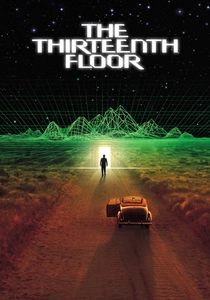
The Thirteenth Floor (1999)
Description: This film explores a virtual reality simulation where users can enter a 1930s Los Angeles. It delves into the idea of nested realities, where characters question their own existence within multiple layers of simulation.
Fact: The film is based on the novel "Simulacron-3" by Daniel F. Galouye, which also inspired the German film "World on a Wire."
 Watch Now
Watch Now
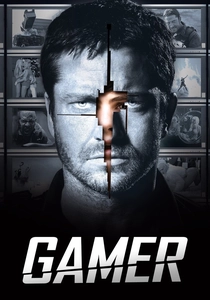
Gamer (2009)
Description: In a dystopian future, prisoners can fight for their freedom in a virtual reality game controlled by players. It raises questions about free will, consent, and the ethics of using human beings as entertainment.
Fact: The film stars Gerard Butler and was directed by Mark Neveldine and Brian Taylor, known for their unique visual style.
 Watch Now
Watch Now

Inception (2010)
Description: While not strictly about a simulator, Inception deals with the concept of entering and manipulating dreams, which can be seen as a form of simulation. It's a complex narrative about planting an idea in someone's subconscious.
Fact: The film's ending, where the spinning top is left spinning, has been the subject of much debate regarding whether the protagonist is still in a dream or has returned to reality.
 Watch Now
Watch Now
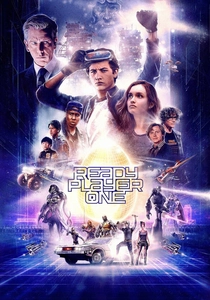
Ready Player One (2018)
Description: Set in a future where people escape their harsh reality by entering the OASIS, a virtual reality universe, this film explores the quest for control over this simulated world and the implications of living in a virtual environment.
Fact: The film was directed by Steven Spielberg and features numerous pop culture references from the '80s and '90s.
 Watch Now
Watch Now
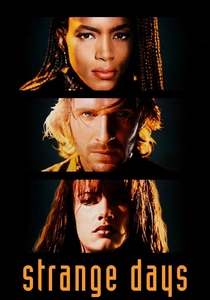
Strange Days (1995)
Description: In this cyberpunk thriller, a device allows users to experience recorded memories, blurring the lines between reality and simulation. It explores themes of voyeurism, privacy, and the commodification of human experiences.
Fact: The film was co-written by James Cameron and Kathryn Bigelow, who also directed it. It was ahead of its time in exploring the concept of virtual reality.
 30 Days Free
30 Days Free

